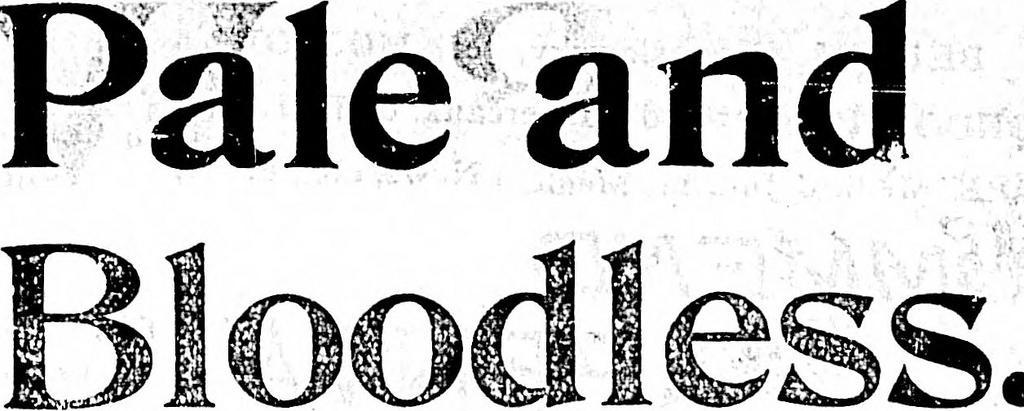The lack of red blood cells or hemoglobin in the blood is termed as Anemia. You may also be diagnosed as anemic is your red blood cells do not have a high enough hemoglobin count. Since hemoglobin is responsible for the amount of oxygen in our blood, being anemic results in a decreased flow of oxygen in the blood.
There are 5 different types of anemia. These are:
Iron deficiency anemia: When the iron levels of the blood are lower than normal.
Sickle cell anemia: When the red blood cells are shaped like a 'sickle' and hence more fragile. This is an inherited condition.
Thalassemia: When the body does not produce enough red blood cells or hemoglobin. This is also an inherited condition.
Megaloblastic anemia: When the blood does not have enough vitamin B12 and hence cannot transport hemoglobin through the body.
Hemolytic anemia: When the red blood cells are rapidly removed from the blood due to an infection, medication or disease.
Lack of oxygen can have a serious effect on the organs of the body. Hence the symptoms of anemia are also the effects of the disease.
Some of these are:
Lack of energy
Fatigue
Dizziness
Chest pain
Difficulty breathing
Abnormal heartbeat
Reduced attention span
Numbness of the hands and feet.
Anemia can also lead to a number of major health problems such as:
Heart disease: Anemia is directly linked to heart disease. When the blood carries less oxygen, the heart needs to work harder to pump it to the rest of the body. Thus, people who are anemic are at a higher risk of having a heart attack than a non anemic person. Anemia can also lead to arrhythmia or a condition where the person suffers from an irregular heartbeat.
Pregnancy complications: One of the first and most vital supplements prescribed to a pregnant woman is iron. Iron is essential not only for a healthy baby, but also for your own body. Anemia caused by a lack of iron can result in premature birth and a number of other complications at the time of pregnancy.
Increased risk of infections: Lack of oxygen in the blood can affect your immune system by lowering its ability to fight infections. This makes the body vulnerable to diseases.
Cognitive damage: Anemia in children can result in a greatly reduced attention span and weaken their memory. Sometimes, even when treated, this can result in permanent scarring and reduced IQ levels.
Microcytic anaemia is a condition where the body has fewer than normal red blood cells. Red blood cells that are smaller than usual in size are described as microcytosis. Anaemia is a condition which happens when your normally functioning red blood cells become low in numbers.
Diagnosis of microcytic anaemia
A complete blood count (CBC) blood test can help in diagnosing microcytic anaemia. If you are diagnosed with anaemia, another test known as blood smear test will be done. This test helps in spotting if your red blood cells have gone through microcytic or macroctyic changes.
In case you stomach of abdominal pain, a few more tests will be required. These include CT scan of abdomen, abdominal ultrasound and upper GI endoscopy. Women who experience pelvic pain and heavy blood flow during periods will be checked for uterine fibroids or other conditions which are leading to these symptoms.
Treatment for microcytic anaemia
Treating the underlying cause or condition of microcytic anaemia is the key to treat it. Supplements of iron and Vitamin C might be suggested to you. This will be followed by treating the causes such as chronic or acute blood loss. Women are often given hormone therapy with the help of birth control pills.
In case the microcytic anaemia is to severe, it can increase risk of conditions such as cardiac failure - which is usually treated by blood transfusion.
Prevention of microcytic anaemia
Iron deficiency is the leading cause of microcytic anaemia and it can be prevented by consuming a diet rich in iron and Vitamin C. Vitamin C is require to enable your body to absorb the consumed iron.
Foods rich in iron include red meat, dark leafy green veggies, poultry, beans, raisins, oranges, grapefruits, red peppers, Brussel sprouts, kale, strawberries and broccoli to name a few.
Dates are a good source of vitamins, minerals and healthy fiber. Eating 2-3 Dates each day can prove good for health. As Dates are high in sugar, it is recommended to consume them in a certain limit.
Benefits of having Dates :-
- They improve Digestion
- They are good Energy Boosters
- They help in treating and preventing Anaemia
- They Reduce the risk of Heart Stroke
- They promote Healthy Pregnancy and a Safe Delivery
- They boost brain health
- They can help you gain weight
- They strengthen your Bones
- They boost your Immunity level









